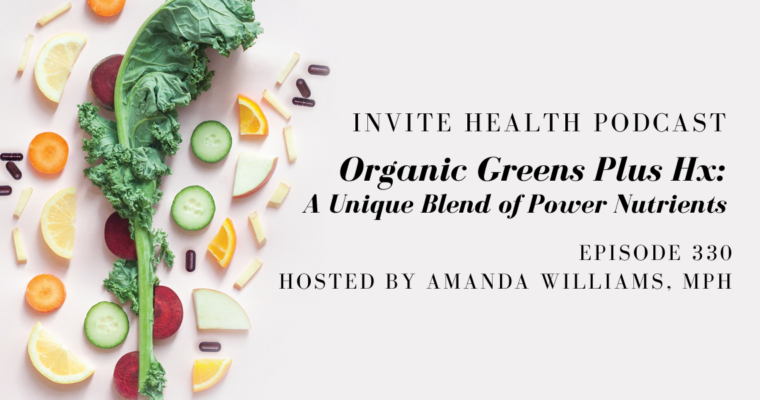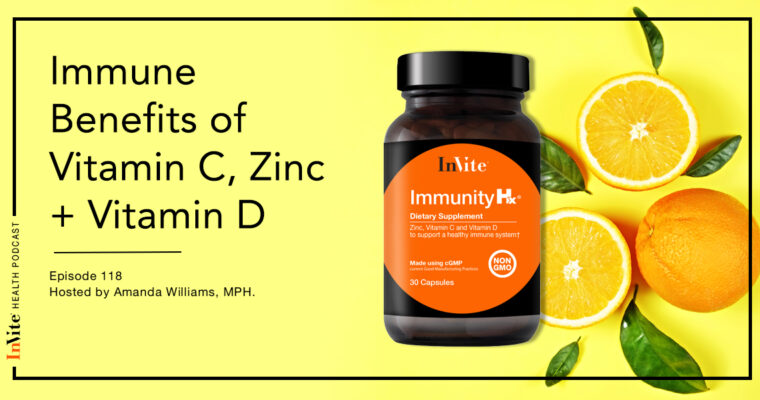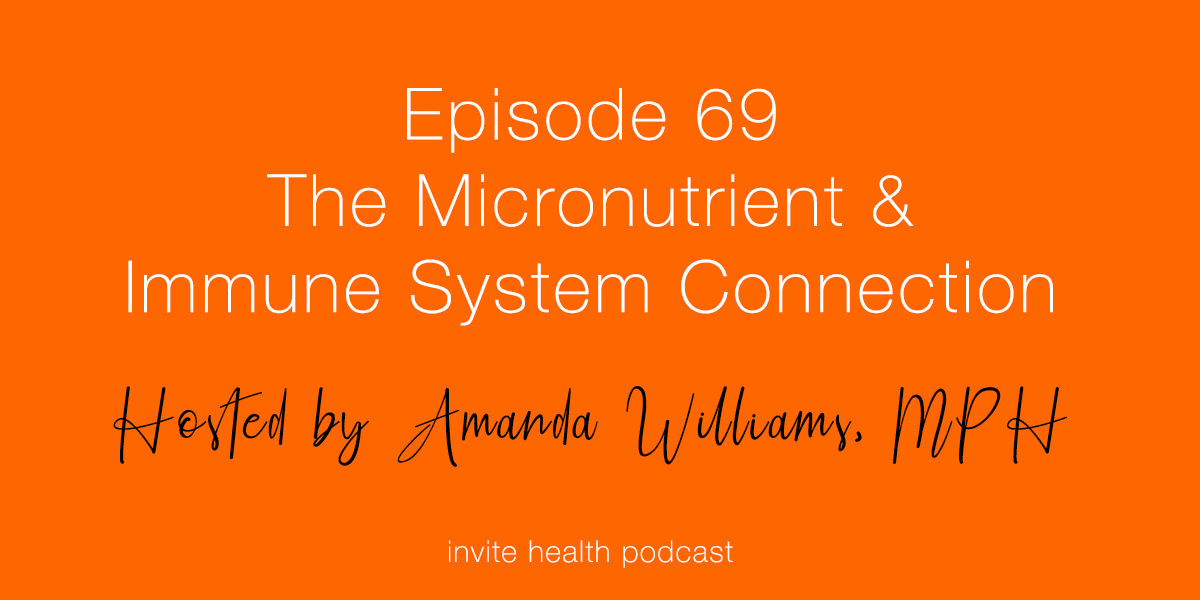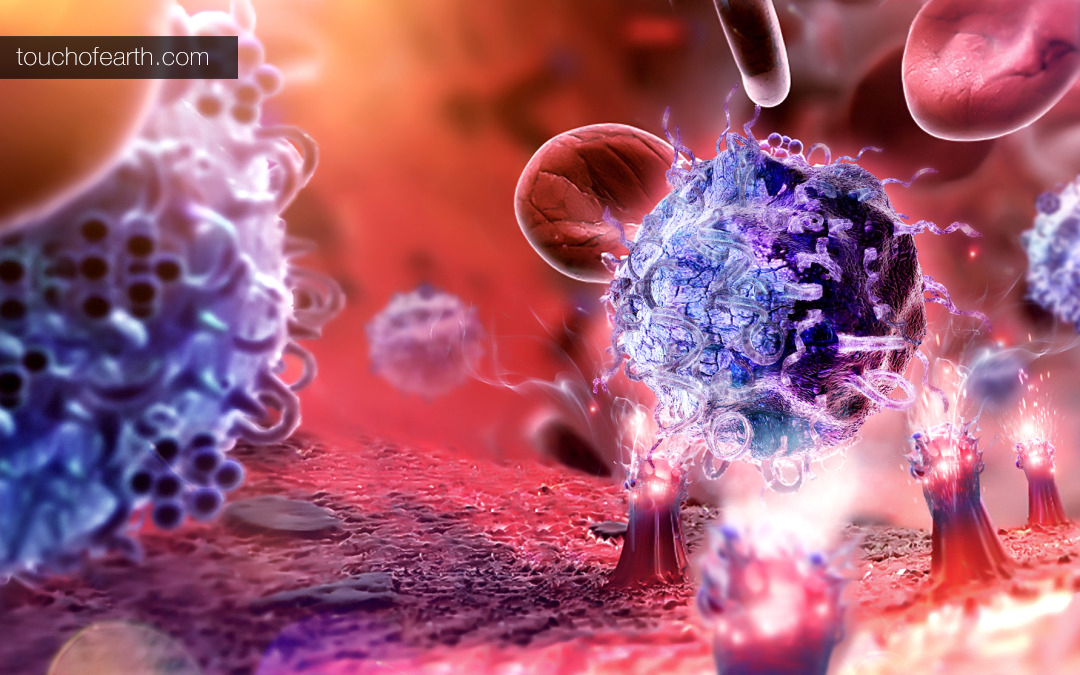Invite Health Podcast, Episode hosted by Amanda Williams, MPH
Subscribe Today!
Today we will be discussing the important role of micronutrients and the immune system, and understanding how the immune system itself is working based on levels of key vitamins and minerals. If we are not obtaining adequate amounts of these micronutrients from our diet alone then this could create a hinderance to our immune defenses. This is really interesting and important information, in terms of the way these key vitamins and minerals are working across many different mechanisms with our immune system as a whole.
The Proper Function of the Immune System
There are many micronutrients that play a huge role in the immune response within our bodies. Having adequate amounts of these key essential nutrients is necessary in order to ensure the proper function of our immune system. The micronutrients that have been shown to have the strongest evidence for immune support include Vitamin C, Vitamin D and Zinc. But how do they work to enhance our immune defenses?
There are different layers of defense that our body provides us in order to protect us from bacteria, viruses and other factors that can compromise our health. Our skin is the first line of defense and is considered a physical barrier. Your GI tract, the lining of your intestines, and the gut microbiota (healthy bacteria in your gut) is the second line of defense. The next is on a cellular level; different lymphocytes, phagocytes, granulocytes and antibodies are included in this. These are the different layers within the immune system.
What are the basic nutrients needed during COVID-19? Click here to learn more >>
But there are different forms of immune systems too. Our innate immune system occurs very fast and happens within minutes of exposure. We have biochemical mechanisms like an inflammatory response that occur in the innate immune system. Our adaptive immune system is considered our acquired immunity; it includes our B and T cells. There is a strong connection between our innate and adaptive immune systems and micronutrients.
Crash course on immunology
Say you have an exposure to a particular pathogen, like COVID-19. We recognize that we have these different physical barriers – our skin, our respiratory airways. Then we look and see which nutrients are affected and what contributes to the actual integrity of those physical barriers, like Vitamins A, C, D, E and B-Vitamins. Our innate immune response is where you get this big flood of all of these key micronutrients – Zinc, Copper, Selenium and Magnesium.
My Recommendations
This is why I advise taking a simple daily multivitamin that includes Grape Seed extract. One tablet of a superior, non-GMO multivitamin mineral formula can provide you with these key nutrients. It may even be advantageous to take additional isolated nutrients on top of that. You may want to add in a B-Complex formula, a Vitamin C supplement or Vitamin D supplement. We know that Americans tend to be deficient or insufficient in things such as Magnesium, Zinc and Vitamin D. This is why you should always try to incorporate them into your daily supplemental routine.†
B-Vitamins are all involved in our intestinal immune regulation and in supporting the gut barrier for immunity. We can also look at Zinc, which has been shown to maintain the integrity of the skin and mucosal membranes. Vitamin C is very important and required for proper Collagen synthesis, to protect cell membranes from damages caused by free radicals. Vitamin D is responsible for modifying the intestinal microbiota to have a healthier composition of those microbes, the bacteria that are in our intestines and maintain our immune defenses. All of these things support the integrity of the epithelial barriers.†
In terms of your diet, you may want to start to follow a Mediterranean Diet for overall health and wellness. It includes meat and fish, nuts, olive oil and tons of fruits and vegetables to provide you with the nutrition you need for healthy immunity.
Thank you for tuning in to the Invite Health Podcast. You can find all of our episodes for free wherever you listen to podcasts or by visiting www.invitehealth.com/podcast. Make sure you subscribe and leave us a review! Follow us on Facebook, Twitter and Instagram at Invite Health today. We’ll see you next time on another episode of the Invite Health Podcast.









